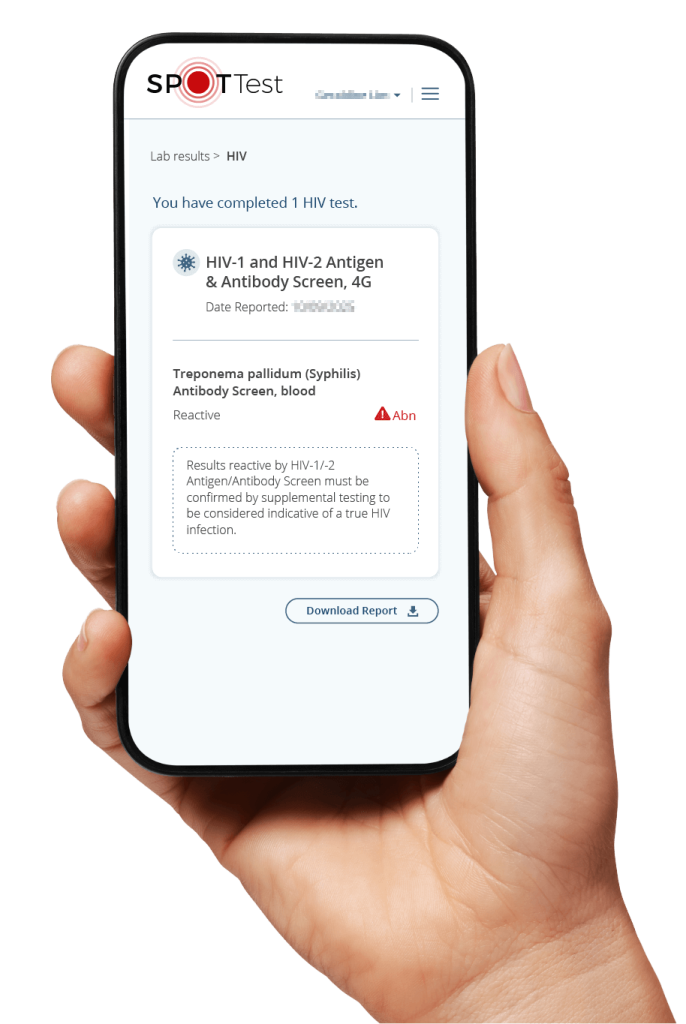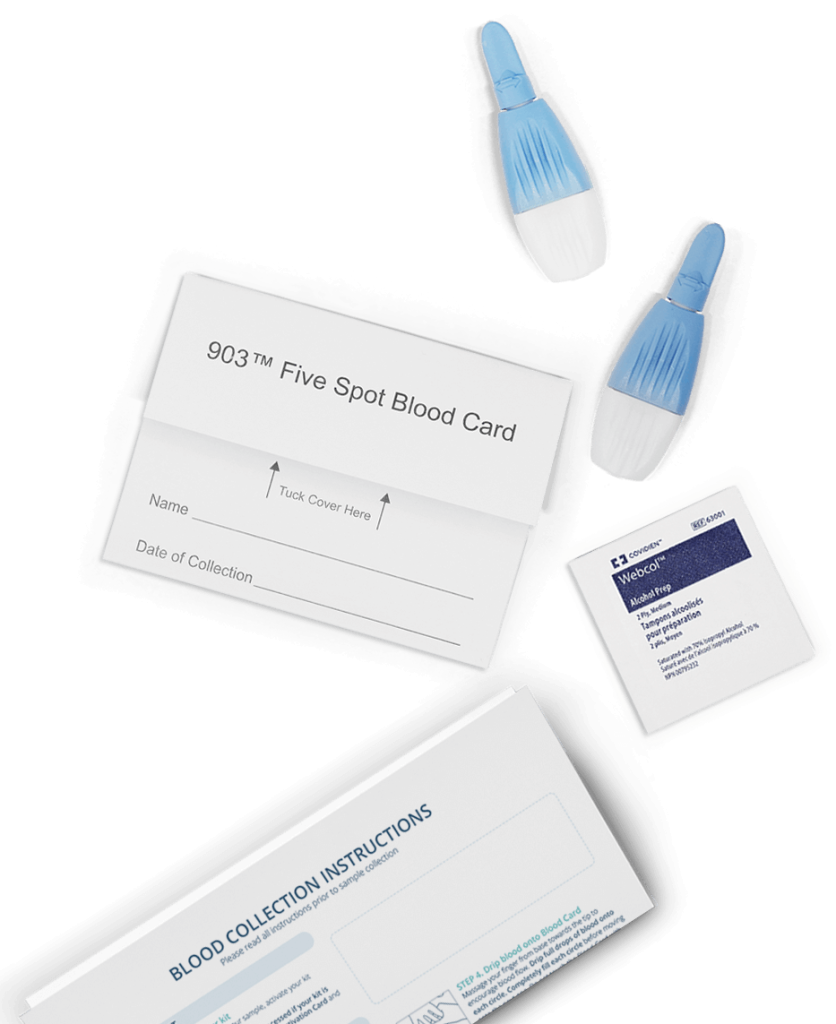Common STD Test
Chlamydia, gonorrhea, and trichomoniasis are prevalent STDs that can often go unnoticed. With our at-home Common STD Test Kit, you can easily test for these infections in the comfort and privacy of your own home. Receive confidential results from our CLIA-certified lab and take control of your sexual health today.
Measures:
✓ Chlamydia
✓ Gonorrhea
✓ Trichomoniasis
Collection methods:
Urine
$129.00 Original price was: $129.00.$89.00Current price is: $89.00.
- Highest accuracy
- Discreet shipping
- Results in 1-3 days*
- Highest accuracy
- Discreet
- Results in 1-3 business days
At-Home Screening for Chlamydia, Gonorrhea, and Trichomoniasis
Chlamydia, Gonorrhea, and Trichomoniasis are among the most common sexually transmitted diseases (STDs), often spreading through vaginal, anal, or oral sex. These infections frequently go unnoticed due to a lack of symptoms, allowing them to be unknowingly passed to others. If untreated, they can lead to serious health complications over time.
Testing for these STDs is simple with our at-home Common STD Test Kit. Skip the clinic visits and test discreetly from the comfort of your home. Collect your samples, use the included prepaid shipping supplies, and send them to our CLIA-certified lab for quick, confidential results.
Early detection is crucial to managing these infections and preventing future complications. Regular testing helps protect both you and your partners. Get started today!

Why Get Tested?
You should consider getting tested if:
- You are sexually active.
- You’ve had unprotected sex.
- You’re beginning a new relationship.
- You’re experiencing symptoms of an STD.
- A partner has been diagnosed with an STD.
Note: Chlamydia, gonorrhea, and trichomoniasis have “window periods” when early infections may not be detected. These are approximately 2 weeks for chlamydia and gonorrhea, and 3–6 weeks for trichomoniasis
Symptoms of Chlamydia, Gonorrhea & Trichomoniasis
Symptoms in Males
Endocervical bleeding
Increased urinary frequency
Rectal pain, swelling & bleeding
Painful urination
Vaginal discharge
Symptoms in Males
Testicular pain & swelling
Increased urinary frequency
Rectal pain, swelling & bleeding
Painful urination
Urethral discharge
What's included in this test?
Chlamydia
Chlamydia, caused by the bacterium Chlamydia trachomatis, is the most commonly reported bacterial STD worldwide. About 60% of new infections occur in individuals aged 15 to 24, with females experiencing infection rates approximately twice as high as males.
Chlamydia is diagnosed through nucleic acid amplification testing of urine samples or vaginal swabs. While it is easily treated with antibiotics, reinfection can occur through sexual contact with an infected partner, increasing the risk of serious reproductive health complications.
Gonorrhea
Gonorrhea is a common STD caused by the bacterium Neisseria gonorrhoeae. In women, it can affect the cervix, uterus, and fallopian tubes, while in men, it primarily targets the urethra. Gonorrhea can also infect the mucous membranes of the mouth, eyes, and rectum.
Diagnosis is usually made through nucleic acid amplification testing (NAAT) of vaginal swabs or urine samples. Gonorrhea is treatable with dual antibiotic therapy, but reinfection can occur after contact with an infected partner, increasing the risk of serious reproductive health issues.
Trichomoniasis
Trichomoniasis is a common STD caused by the protozoan Trichomonas vaginalis. It typically infects the vulva, vagina, cervix, and urethra in women, and the urethra in men. Most cases are asymptomatic, with only about 30% showing symptoms.
Trichomoniasis increases the risk of other STDs, including HIV, and can cause complications in pregnancy, such as preterm delivery and low birth weight. It is diagnosed using vaginal swabs or urine samples and is easily treated with antibiotics, though reinfection is possible through contact with an untreated partner.
How It Works


CHOOSE TEST
Select your test from our wide selection of home test kit options. Receive your kit within a few days in a discreet unmarked package.

COLLECT SAMPLE
Collect your sample quickly and discreetly from the privacy of your own home. No appointments or lab visits required.

GET YOUR RESULTS
Get your physician reviewed results in a secure online portal in 1-2 days. Free telehealth consult provided if required.

FAQs
For more, visit our Learning Center

Testing is simple and convenient. Collect a urine sample at home using the included collection cup, transfer it to the sample vial, and mail it to our CLIA-certified lab using the prepaid shipping envelope.
At the lab, we use nucleic acid amplification testing (NAAT), a highly sensitive technique that detects bacterial DNA from chlamydia, gonorrhea, and trichomoniasis. NAAT amplifies bacterial DNA millions of times, allowing for the detection of even tiny amounts with exceptional accuracy. Its sensitivity and speed make it the gold standard for diagnosing these STDs.
STD testing is crucial because chlamydia, gonorrhea, and trichomoniasis are widespread, particularly among young adults aged 15-24. Many people with these infections don’t show symptoms, making testing the only way to know for sure if you’re infected. Early detection ensures effective treatment, preventing long-term health complications. Testing helps protect both your health and the health of your current or future sexual partners.
Yes, re-infection with chlamydia, gonorrhea, or trichomoniasis can occur after treatment if you are exposed to the infection again. While antibiotics cure the current infection, they do not prevent future exposures or provide immunity.
If you test positive, reach out to a healthcare professional right away to discuss treatment options. Be sure to follow your doctor’s instructions closely. It’s also important to notify your sexual partners so they can get tested and treated if needed.
These infections are typically treated with a course of antibiotics, which your doctor will prescribe based on the specific infection. It’s crucial to complete the full course, even if you start feeling better, to ensure the infection is completely cleared. Both you and your sexual partner(s) should avoid sexual activity until treatment is finished to prevent reinfection.
Early diagnosis and consistent adherence to treatment are key for effective management. Treatment plans may vary based on individual health, the stage of the infection, and other factors, so it’s important to consult a healthcare provider for personalized advice.
To reduce your risk of contracting these STDs, consider the following preventive measures:
- Abstinence: The most effective way to prevent STDs is to avoid all sexual activity (vaginal, anal, and oral).
- Regular Testing: Get tested regularly, especially if you have multiple partners or engage in higher-risk behaviors. Early detection leads to prompt treatment.
- Condoms: Use condoms consistently and correctly during every sexual encounter to reduce the risk of transmission.
- Limit Sexual Partners: Fewer sexual partners lowers your risk of exposure.
- Mutual Monogamy: Being in a mutually monogamous relationship with a partner who has been tested reduces your risk.
- Avoid Sharing Needles: Never share needles, syringes, or other injection equipment.



